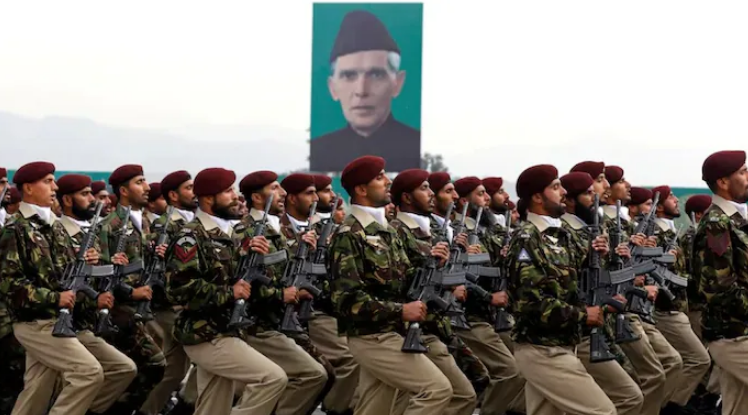
Pakistan Prioritizes Defence: 20% Military Budget Hike Amid Cuts to Public Spending
In July-June 2025-26, the revised budget increased the amount allotted to defence from 2.12 trillion to 2.55 trillion rupees ($9 billion). This does not include the $2.63 billion (742 billion Pakistani rupees) allotted for military pensions.
Pakistan appears to be putting more emphasis on military spending than on development following a military conflict with India last month. The country’s total debt has risen to around PKR 76,000 billion (almost USD 270 billion) in the first nine months of the current fiscal year. Defence spending increased by a staggering 20% in the budget that Prime Minister Shehbaz Sharif’s government unveiled on Tuesday, although overall spending was cut by 7%.
According to Pakistan Finance Minister Muhammad Aurangzeb, Islamabad has stabilised the economy, which as recently as 2023 faced the possibility of defaulting on its debts. He expressed optimism that his ambitious proposal of PKR 17.573 trillion ($62 billion) will propel economic development by 4.2% in the upcoming fiscal year. In addition, Pakistan predicted a 3.9% GDP (gross domestic product) deficit in 2024–2025, compared to the 5.9% objective. Growth was predicted to be 4.2% and inflation to be 7.5%.
However, news agency Reuters predicts that growth this fiscal year will likely be 2.7%, falling short of the projected aim of 3.6%. The region’s growth is well ahead of Pakistan’s. The average growth rate for South Asian nations in 2024 was 5.8%, and the Asian Development Bank projects a growth rate of 6.0% in 2025.
Spending on Defence
In July-June 2025-26, the revised budget increased the amount allotted to defence from 2.12 trillion to 2.55 trillion rupees ($9 billion). The total defence budget comes to 3.292 trillion Pakistani rupees ($11.67 billion), excluding 742 billion ($2.63 billion) for military pensions. Spending on equipment and other tangible assets is also included in the budget, totalling 704 billion Pakistani rupees ($2.5 billion).
In a statement, Prime Minister Sharif stated that Pakistan must overtake India “in the economic field.”
The terrorist incident that murdered 26 people in Pahalgam, Jammu and Kashmir, in April set off the confrontations with India. Pakistan has been accused by India of supporting the terrorists who carried out the attack.
Following IMF Guidelines
The International Monetary Fund (IMF) gave $2.4 billion in financial assistance to Islamabad last month. According to Islamabad, the FY26 budget would be prepared “in close consultation with the Fund.”
In response to the IMF’s proposal, Finance Minister Muhammad Aurangzeb stated that the government planned to fully privatise Pakistan International Airlines.
Following a series of interest rate decreases, the government claims that a significant decline in borrowing costs will support growth.
However, given that investment is still being hampered by fiscal restraints and IMF-mandated reforms, experts caution that monetary policy may not be sufficient on its own.
According to Aurangzeb, the budget marked the beginning of a plan to increase exports, build up foreign exchange reserves to prevent future balance of payments problems, and make the economy more competitive. “In short, our budget strategy is to change the economy’s DNA by bringing basic changes,” he stated.


